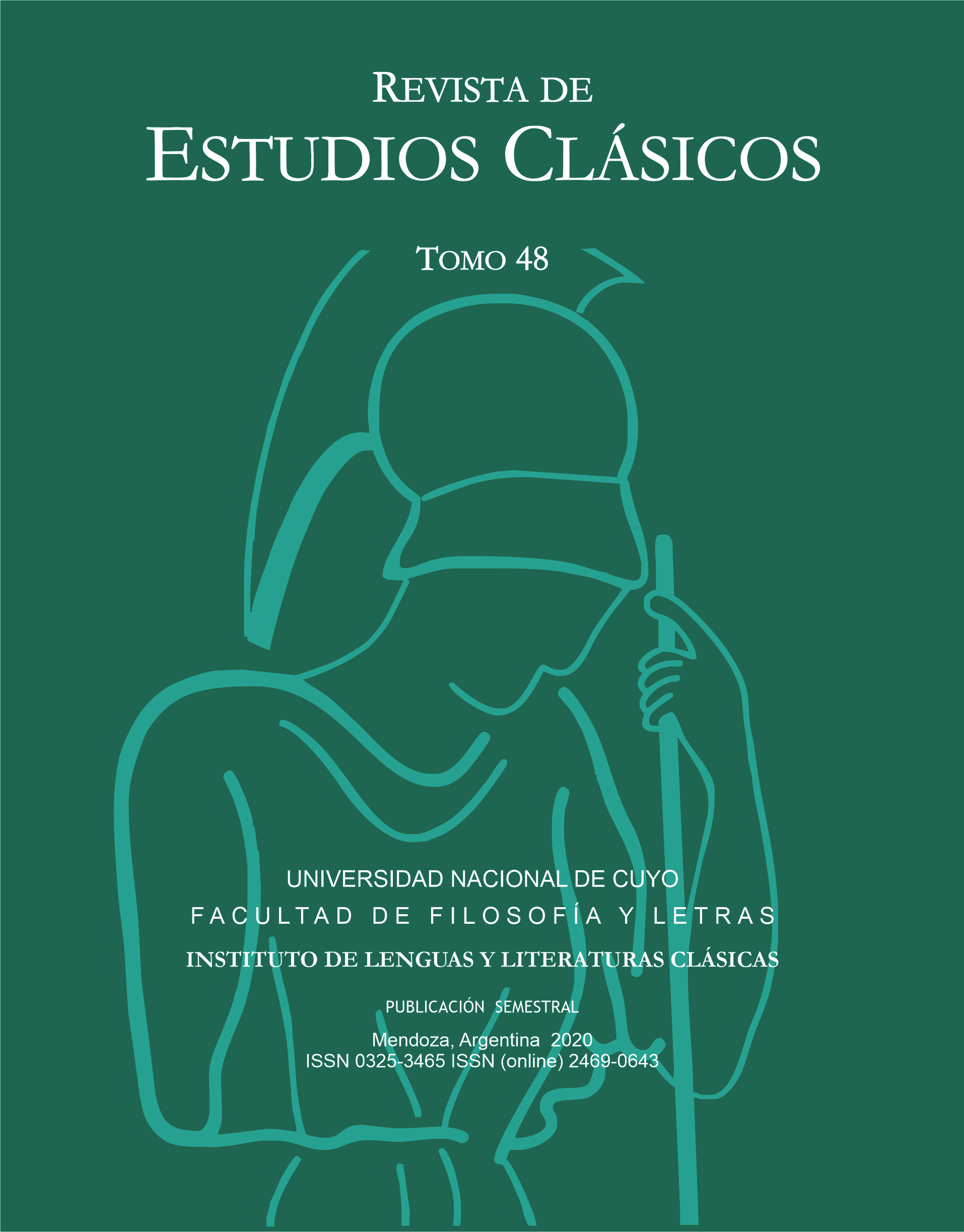The re-creation of ancient greek epic in Argonautas by Carlos Fundora
Keywords:
Cuban theater, classical tradition, epic, myth, parodyAbstract
In the contemporary Latin American theater, a vast tendency of rewriting and reinterpretation of classical myths has been developed. Within this tradition, it is the dramatic work Argonautas, by the Cuban author Carlos Fundora, which re-creates the Greek myth of the expedition of the ship Argo and its crew. The porpuses of this paper were to analyze the intertextual relation that Fundora establishes with previous literary works, especially with Argonautica and Homeric epic, and to point out some of the parodic existent elements in the Cuban playwright’s piece. The analyzed aspects led to the conclusion that the influence of Homer and Apollonius Rhodius on the Cuban play is evident, most of all in the re-creation of motives and characters of ancient epic. Also, through the realistic and humorous vision that he offers about the ancient myth, Fundora succeeds in entertaining the reader, at the same time as he expounds thoughts concerning present problems.
References
Fundora, C. (2013). Argonautas. La Habana: Ediciones Alarcos.
García, W. (1997). Sabotaje textual/teatral contra el modelo canónico: Antígona–Humor de Franklin Domínguez. En Latin American Theatre Review (pp. 15–29).
Graves, R. (1989). Hércules y yo. La Habana: Editorial Arte y Literatura.
Homero (1970). Odisea (traducción de Luis Segalá y Estalella). La Habana: Instituto Cubano del Libro.
Homero (1979). Ilíada (traducción de Luis Segalá y Estalella). La Habana: Editorial Pueblo y Educación.
Hutcheon, L. (1981). Ironía, sátira y parodia. Una aproximación pragmática a la ironía. En Poétique 45. 173–193.
Hutcheon, L. (1993). La política de la parodia posmoderna (traducción de Desiderio Navarro). En Criterios, La Habana (pp. 187–203).
Kristeva, J. (1969). Narration et transformation. Semeiotica, 1. 422–448.
Kristeva, J. (1969). Sémeiotiqué. Recherches pour une sémanalyse. París: EÌditions du Seuil.
Kristeva, J. (1997). Bajtín, la palabra, el diálogo y la novela. En Intertextualité. Francia en el origen de un término y el desarrollo de un concepto (selección y traducción de Desiderio Navarro) (pp. 1–24). La Habana: Colección Criterios, UNEAC, Casa de las Américas.
Miranda, E. (2006). Medea y su palinodia. En Calzar el coturno americano: mito, tragedia griega y teatro cubano (pp. 165–185). La Habana: Ediciones Alarcos.
Downloads
Published
How to Cite
Issue
Section
License
Aquellos autores/as que tengan publicaciones con esta revista, aceptan los términos siguientes:
- Los autores/as conservarán sus derechos de autor y garantizarán a la revista el derecho de primera publicación de su obra, el cuál estará simultáneamente sujeto a laLicencia Creative Commons Atribución-NoComercial-CompartirIgual 2.5 Argentina (CC BY-NC-SA 2.5 AR). (https://creativecommons.org/licenses/by-nc-sa/2.5/ar/)que permite a terceros compartir la obra siempre que se indique su autor y su primera publicación esta revista.
- Los autores/as podrán adoptar otros acuerdos de licencia no exclusiva de distribución de la versión de la obra publicada (p. ej.: depositarla en un archivo telemático institucional o publicarla en un volumen monográfico) siempre que se indique la publicación inicial en esta revista.
- Se permite y recomienda a los autores/as difundir su obra a través de Internet (p. ej.: en archivos telemáticos institucionales o en su página web) antes y durante el proceso de envío, lo cual puede producir intercambios interesantes y aumentar las citas de la obra publicada. (Véase El efecto del acceso abierto).


































